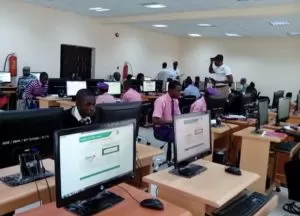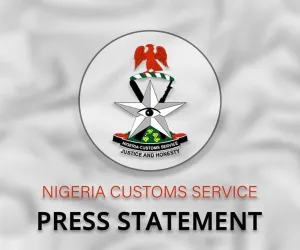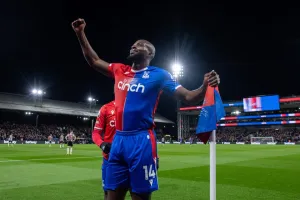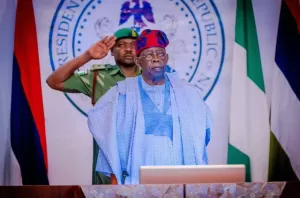The Political Life of Muhammadu Buhari: A Legacy of Discipline and Divisiveness

Muhammadu Buhari (December 17, 1942 – July 13, 2025) was one of Nigeria’s most prominent and polarizing political figures, whose career spanned military leadership, opposition politics, and two terms as a democratically elected president. His life in public service was defined by a reputation for discipline and anti-corruption zeal, but also by controversies over governance style, economic challenges, and human rights concerns. This article provides a comprehensive exploration of Buhari’s political journey, from his early military roles to his presidency and enduring legacy.
Early Life and Military Career
Born in Daura, Katsina State, Muhammadu Buhari joined the Nigerian Army in 1961, embarking on a military career that would shape his political trajectory. Trained in Nigeria, the United Kingdom, India, and the United States, Buhari rose through the ranks, gaining a reputation for discipline and competence. His first significant political role came in 1975, following the military coup that ousted General Yakubu Gowon. Buhari was appointed Military Governor of the North-Eastern State (later Borno) from 1975 to 1976. After the creation of Borno State in 1976, he briefly served as its first governor.
That same year, Buhari was appointed Federal Commissioner for Petroleum and Natural Resources under General Olusegun Obasanjo’s military regime. In 1977, he became the inaugural Chairman of the Nigerian National Petroleum Corporation (NNPC), a position he held until 1978. These roles established him as a key figure in Nigeria’s military and resource governance, setting the stage for his later prominence.
Military Head of State (1983–1985)
On December 31, 1983, Buhari became Nigeria’s military head of state following a coup that overthrew the civilian government of President Shehu Shagari. His regime introduced the “War Against Indiscipline,” a campaign aimed at restoring societal values, combating corruption, and enforcing public order. Measures included public humiliation of tardy civil servants, mandatory queueing, and strict laws that led to the imprisonment of politicians, businessmen, and critics, including the renowned musician Fela Kuti.
Buhari’s administration cracked down on corruption, targeting high-profile figures, and implemented economic austerity measures, such as import restrictions, to stabilize Nigeria’s economy. However, these policies led to job losses and business closures, drawing criticism. His regime was also accused of human rights abuses, including restrictions on press freedom and political expression. On August 27, 1985, Buhari was deposed in a coup led by General Ibrahim Babangida and detained until 1988.
Return to Public Service: Petroleum Trust Fund (1994–1998)
After his release, Buhari maintained a low profile until 1994, when he was appointed Executive Chairman of the Petroleum Trust Fund (PTF) by the Sani Abacha administration. The PTF, funded by petroleum revenues, focused on infrastructure projects, including roads, water supply, education, and healthcare. Buhari’s leadership of the PTF reinforced his reputation for integrity and discipline, qualities that would later define his political campaigns.
Entry into Democratic Politics
Buhari entered Nigeria’s democratic political arena in 2003, motivated by a desire to address corruption and governance failures. Running under the All Nigeria Peoples Party (ANPP), he contested the presidential election against incumbent President Olusegun Obasanjo of the People’s Democratic Party (PDP). Buhari lost, securing 32.2% of the vote to Obasanjo’s 61.6%. He rejected the results, citing electoral irregularities, and faced campaign challenges, including restrictions on rallies.
In 2007, Buhari ran again under the ANPP, facing PDP’s Umaru Yar’Adua. The election, marred by widespread irregularities, saw Yar’Adua win with 69.8% of the vote to Buhari’s 18.7%. International observers criticized the polls, and Yar’Adua himself acknowledged their flaws. Buhari pursued legal challenges but was unsuccessful.
In 2010, Buhari left the ANPP to form the Congress for Progressive Change (CPC). He contested the 2011 presidential election against President Goodluck Jonathan of the PDP, securing 12.2 million votes (31.98%) to Jonathan’s 22.5 million (58.89%). Despite a relatively transparent election, Buhari’s campaign was hampered by limited party infrastructure and funding.
The 2015 Presidential Victory
Buhari’s political fortunes changed in 2014 when he emerged as the presidential candidate of the All Progressives Congress (APC), a coalition of opposition parties. His campaign leveraged his reputation for incorruptibility and military discipline, focusing on anti-corruption, security (particularly the Boko Haram insurgency), and economic reform. On March 28, 2015, Buhari defeated incumbent President Goodluck Jonathan, winning 15.4 million votes to Jonathan’s 12.8 million. This historic victory marked the first time an incumbent Nigerian president lost re-election. Buhari was sworn in as Nigeria’s 15th president on May 29, 2015, at the age of 72, making him the oldest president at inauguration.
His campaign gained traction through endorsements from influential figures and groups, including former President Olusegun Obasanjo and the Movement for the Emancipation of the Niger Delta (MEND). Buhari’s survival of a 2014 Boko Haram bomb attack in Kaduna further bolstered his image as a resilient leader committed to tackling insecurity.
First Term as President (2015–2019)
Buhari’s first term prioritized anti-corruption and security. His administration aggressively pursued corrupt officials, recovering over $300 million in looted funds through initiatives like the Treasury Single Account and the Presidential Advisory Committee against Corruption. The fight against Boko Haram saw progress, including the release of 82 Chibok schoolgirls in 2017, following the 2014 kidnapping that had drawn global attention.
However, Buhari’s tenure faced significant challenges. Economic difficulties, including petrol shortages and currency devaluation, led to public discontent. His administration was criticized for selective anti-corruption probes, notably the 2019 suspension of Chief Justice Walter Onnoghen, which some viewed as politically motivated. Buhari’s health also became a public concern, with extended medical leaves in the UK in 2017 sparking rumors about his fitness to govern. In 2018, he publicly debunked claims, propagated by IPOB leader Nnamdi Kanu, that he had died and been replaced by a body double named “Jubril of Sudan.”
Second Term (2019–2023)
Buhari won re-election in February 2019, defeating PDP’s Atiku Abubakar with 15.2 million votes to Abubakar’s 11.3 million. His second term continued to focus on anti-corruption and security but faced new challenges, including the 2020 End SARS protests against police brutality. The protests, driven by Nigeria’s youth, led to the disbandment of the Special Anti-Robbery Squad (SARS). However, the violent response to protesters, particularly the Lekki Toll Gate incident, drew widespread condemnation.
Economic struggles persisted, with rising inflation and unemployment exacerbating public frustration. Insecurity, including banditry and kidnappings, remained a pressing issue. Buhari’s governance style, often described as authoritarian, drew criticism for alleged favoritism in appointments and a “military hand” in democratic rule. Posts on X reflect this polarization, with some users praising his anti-corruption efforts while others, like @RealOlaudah, labeled his tenure “disastrous.”
Post-Presidency and Legacy
After handing over power to President Bola Tinubu on May 29, 2023, Buhari remained a significant figure in Nigerian politics. He issued statements supporting Tinubu’s administration and mourning the deaths of political figures like Rotimi Akeredolu and Bukar Abba Ibrahim. His death on July 13, 2025, in a London clinic, announced by his family via Garba Shehu on X, marked the end of an era.
Buhari’s legacy is deeply divisive. Supporters credit him with advancing anti-corruption measures, improving infrastructure through the PTF, and weakening Boko Haram. Critics highlight economic mismanagement, human rights concerns, and perceptions of ethnic bias in governance. Controversies, such as health rumors and age disputes—fueled by claims that his sister, Hajiya Rakiya Adamu, was younger yet described him as her younger sibling—added to his complex public image.
Conclusion
Muhammadu Buhari’s political life was a testament to his enduring commitment to Nigeria, shaped by military discipline and a relentless anti-corruption stance. From his rise as a military governor to his presidency, he navigated Nigeria’s turbulent political landscape with resilience, leaving a legacy that continues to spark debate. His passing on July 13, 2025, closes a chapter in Nigerian history, but the impact of his leadership—both its triumphs and its controversies—will shape discourse for years to come.







